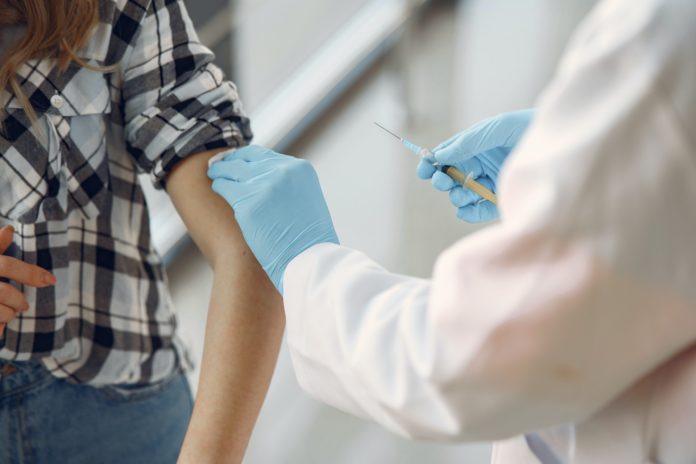With 2022 marking two years since the start of the COVID-19 pandemic, it is natural to reflect and consider where we stand in our pandemic response.
There have been many undeniable successes, such as the approval of safe and effective COVID-19 vaccines and mass efforts to tackle rising case numbers. However, many Canadians have remained hesitant about getting vaccinated and doing their part to help end the pandemic.
As the vaccine rollout began, many people decided to hold off on getting vaccinated until more data became available. Perhaps one of the most surprising groups to decline vaccination during this initial rollout was healthcare workers.
To learn more about why this was the case, a team of researchers from McGill University surveyed 2,761 Canadian healthcare workers to determine their opinions surrounding vaccine uptake. The study was led by Stefanie Dzieciolowska, an MD candidate at McGill, and published in the American Journal of Infection Control.
What causes healthcare workers to become hesitant?
Healthcare workers were among the first to be eligible for vaccination, and their participation in vaccine campaigns is essential in motivating the public. Despite being very knowledgeable in medicine, however, many healthcare workers remain hesitant about the COVID-19 vaccine.
With their survey, Dzieciolowska and colleagues were interested in determining the factors that lead to healthcare workers deciding to get vaccinated, as this population is at high risk of viral exposure. Ensuring vaccine uptake by frontline workers during a pandemic is also important in demonstrating the urgency of vaccination to the general public.
The researchers found that 20% of healthcare workers refused vaccination altogether, reporting reasons such as mistrust of experts and big pharma companies. These are many of the same reasons that members of the general public refuse vaccination as well.
Among those who declined vaccination, 75% reported that they may change their mind in the future, classifying themselves as vaccine-hesitant rather than anti-vax. Vaccine hesitancy was highest among nurses compared to physicians and rehabilitation centre workers.
Furthermore, the team found that occupational exposure to COVID-19 patients was a strong predictor of vaccine acceptance. This indicates that those who witnessed the dangers of the disease first-hand were less likely to refuse the vaccine.
The bystander effect and the pandemic’s progression
Vaccine hesitancy during the COVID-19 pandemic is a prime example of the bystander effect: a term in psychology used to explain why people are less likely to intervene in a situation when more people are present at a scene.
In terms of vaccination, many people who are vaccine-hesitant may believe that current vaccination rates are high enough for us to have achieved herd immunity. They feel less urgency to step up and get vaccinated as a result.
Yet current vaccination rates have not been enough to end the pandemic, and as a result, society continues to suffer as the pandemic rages on.
How can we combat hesitancy and the bystander effect?
The results of the team’s survey highlight a number of areas we can focus on if we want to convince bystanders in the healthcare field to take action and get vaccinated.
In particular, the survey showed that positive peer influence is a major factor in changing vaccine-hesitant minds for healthcare workers. This in turn can spill into the influence of healthcare workers on the general public.
There are many reasons why some healthcare workers may be vaccine-hesitant, including previous negative experiences with the healthcare system or underlying health concerns. This was the case for 35% of respondents in the study.
Other concerns, such as the safety of the vaccine or the approval timeline, can be quelled by educating ourselves and others on the science. For those of us who trust the science, don’t assume that everyone you meet who is concerned about the COVID-19 vaccine is selfish. Begin with an open dialogue, create a safe space for people to ask questions and voice their concerns, and encourage them to step up while acknowledging the difficulty of the situation.
In terms of the healthcare field, healthcare workers can focus on creating open dialogues with their vaccine-hesitant colleagues. This positive peer influence could help convince them to get vaccinated, which in turn could help influence the general public.
The most vulnerable populations, including children and immunocompromised people who may not be able to get vaccinated, are relying on the rest of us to stop acting as bystanders and instead take an active role in trying to end this pandemic.
Let’s ensure that we do not fail them by taking care of not only ourselves, but those around us as well.








































